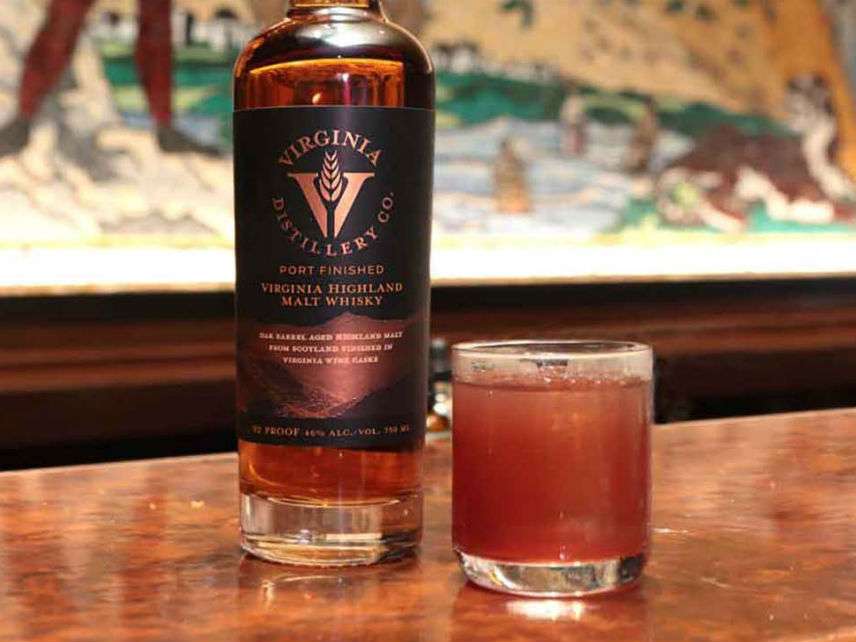'Booze Equality' Bill Inches Forward for Virginia Craft Distilleries
Old Dominion distillers just want fair tax competition with wineries and breweries.

Virginia has 352 wineries, 262 breweries, and 62 distilleries. The state imposes no limits on how much oenophiles and cerevisaphiles may quaff when they visit a winery or brewery—that's up to the discretion of the folks dispensing the drinks. That is not the case for drinkers who enjoy stronger spirits. In the Cavalier Commonwealth, visitors to distilleries may imbibe a total of only 3 ounces of liquor in some combination of half-ounce tastings and 1½-ounce cocktails.
That's bad, but it's a vast improvement over the situation three years ago, when in-house sipping was limited to one and a half ounces.
Even worse, each distillery must be licensed as an ABC store. This means that distillers have to buy their own product at prices set by the ABC and then send all in-store sales receipts to the ABC Board, which returns the wholesale price back to the distilleries. The Virginia wine tax is $1.51 per gallon and the tax on beer is $0.26 per gallon. The ABC Board marks up the price for liquor sold on-site at distilleries by 69 percent. Once ABC takes its 54 percent cut of the purchase price, it ends up effectively taxing spirits at a rate of $30.88 per gallon.
Distillery lobbyist Curtis Coleburn explains in the Richmond Times-Dispatch: "When they sell a $30 bottle of booze at the distillery, about half of that's going to the state." He adds that breweries and wineries pay a dollar or less in taxes when they sell an equivalent amount of alcohol through their tasting rooms.
Earlier this month, Del. Nick Freitas (R-Culpeper) introduced a bill in the Virginia General Assembly that would establish what he calls "booze equality." Basically, the bill would repeal the ABC's high stealth tax on spirits by allowing distillers keep the profits from their on-site sales and thus put them on a more competitive footing with wineries and breweries. Officials from ABC pointed out in a hearing that this would reduce its take by $1.7 million in fiscal year 2020. Virginia distilleries employed 500 people and brought in more than $7.2 million in 2017, up nearly $1 million in 2016 and $2.2 million in 2015.
Sadly, a bill proposed by Del. Matthew Fariss (R-Campbell) that would have lifted the restrictions on how much distillers could serve visitors on-site appears to be going nowhere. The measure failed, in part, because of opposition from the restaurant lobby, which fears competition in the cocktail-serving business.


Show Comments (7)